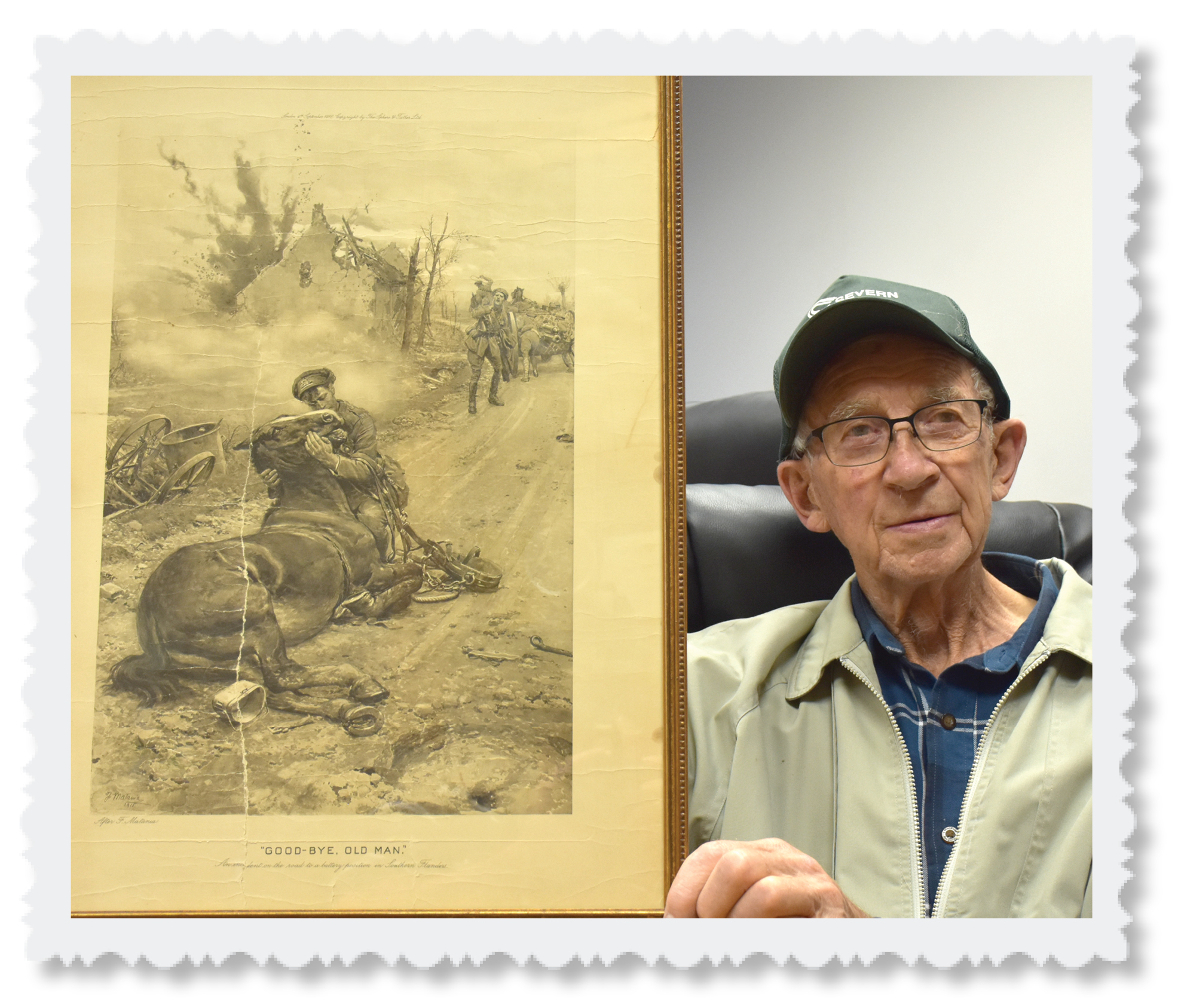GRAND VALLEY – Most people don’t think of animals when they think of the war dead, but Jim Masters can hardly forget.
A print called Goodbye Old Man hangs in his living room, a treasure and fond memory of his father, Robert Masters, who served in the First World War.
The image itself has its own story.
During the First World War animals were almost as important as humans on the front line. Dogs ran messages and detected land mines, pigeons flew messages across enemy lines, and horses pulled wagons bearing weapons, ammunition, food and other supplies.
The Blue Cross set up animal hospitals and sent medicine and supplies to the front line so they could tend to their horses.
Between 1914 and 1918, some 50,000 sick and injured horses and 18,000 dogs were treated by the Blue Cross.
Money was raised by selling postcards, the most famous being Goodbye Old Man, by Italian artist Fortunino Matania.
The image shows a soldier embracing his horse, who has been wounded in battle. In the background a cannon on a wagon can be seen, as can the rest of the company urging the soldier to leave the dying horse and move on.
The painting was commissioned in 1916.
Jim Masters doesn’t know how his father came to own a print of the famous painting that went on to become a famous postcard.
His father died some 50 years ago and Masters is 87. But he vividly recalls how the print was found.
“We didn’t know it existed until after mom and dad died,” Masters said in a phone interview.
“It was rolled up in the attic and my children found it and framed it.
“It was a while after that when my daughter-in-law saw it and she told me the story of the postcard.”
Masters said in the war his father worked with horses hauling munitions to the front line.
He’s sure the image was meaningful to his father, who grew attached to the animals in his care.
Masters said the background is more visible in the 18” x 20” print than the postcard and you can really see the fear and worry on the soldiers’ faces.
“It brings tears to your eyes,” he said.




